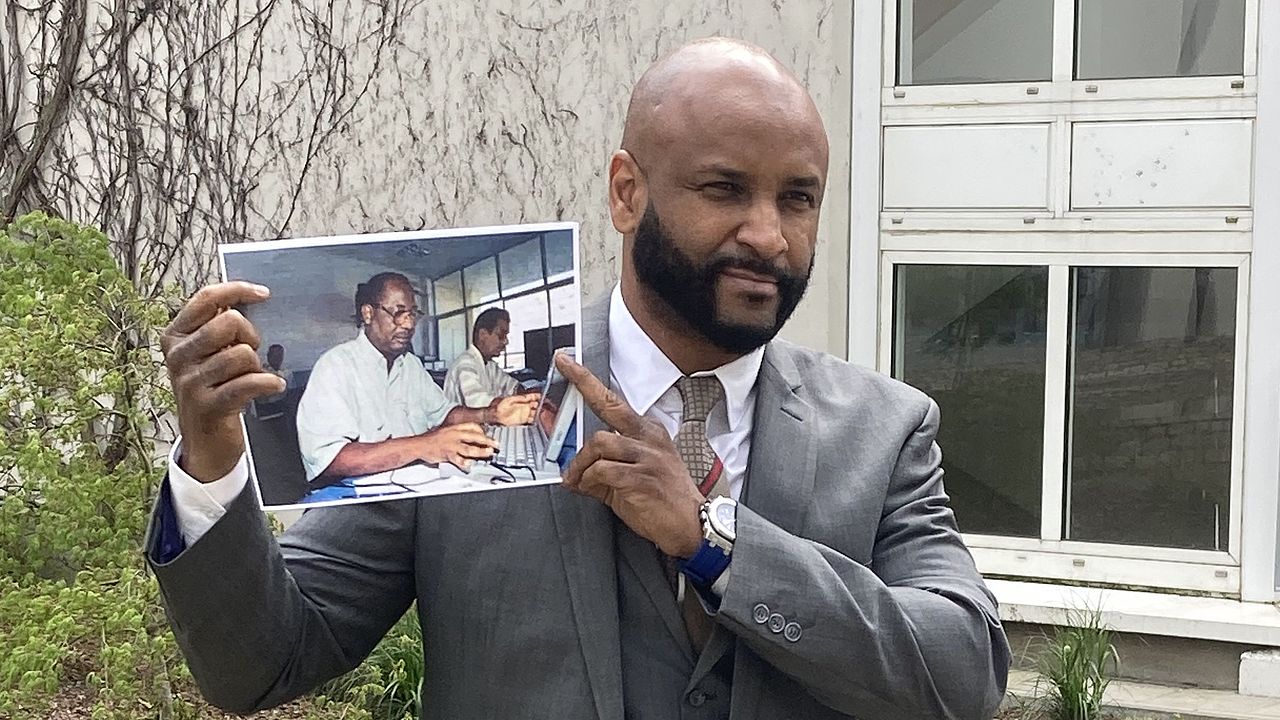Definition
Crimes against humanity
Crimes against humanity are grave violations of international law carried out against a civilian population in a systematic or widespread way.
Show MoreWhen a country is governed by an authoritarian regime, civil society is almost always placed under immense pressure. This was also the case in The Gambia from 1994 until 2017 during the rule of Yahya Jammeh. His armed security forces generated an atmosphere of fear, in which critical voices, along with civil society in general, were systematically intimidated. Journalists critical of the regime were arrested, while human rights defenders were persecuted, and LGBTQ individuals were threatened and tortured.
A paramilitary unit used by Jammeh to specifically target and silence those deemed undesirable was a particularly notorious feature of his regime. A driver for this unit, the so-called Junglers, was tried in Germany, and on 30 November 2023, he was sentenced to life in prison by the Celle Higher Regional Court. The court found Bai L., who was charged with crimes against humanity, murder and attempted murder, guilty on all counts. The human rights violations committed by the Jammeh regime have already been the focus of a truth commission in The Gambia since 2017 – initiated after Jammeh himself fled the country to Equatorial Guinea upon losing the presidential election.
Bai L was a driver for the Junglers from 2003 until 2006. During this time, he was involved in the attempted murder of the lawyer Ousman Sillah, the murder of the former Gambian soldier Dawda Nyassi and the journalist Deyda Hydara, as well as the attempted murder of Ida Jagne and Nian Sarang Jobe who were with Hydara. The verdict states that he committed crimes against humanity by transporting the unit to the respective crime scenes.
Together with the African Network against Extrajudicial Killings and Enforced Disappearances (ANEKED), the Gambian Center for Victims of Human Rights Violations, Human Rights Watch, the International Commission of Jurists, Reporters Without Borders, the Rose Lokissim Association, the Solo Sandeng Foundation, and TRIAL International, ECCHR is supporting the efforts of members of Gambian civil society to obtain legal redress.
The proceedings in Germany are based on the principle of universal jurisdiction, which enables German courts to prosecute the most serious crimes, even if they do not have any direct connection to Germany. Within the framework of the proceedings, the court also had to investigate the larger political context behind these criminal acts. The insights gained from the trials against Bai L. may also influence potential future proceedings against higher-ranking perpetrators.
In contrast to the cases concerning Syrian intelligence officers that ECCHR has also pursued, in the case of the Jammeh dictatorship, a truth and reconciliation process is also actively underway in The Gambia to address past injustices. Beginning in January 2019, the Gambian Truth, Reconciliation and Reparations Commission has investigated the regime’s crimes through public hearings and crime scene investigations. Its final report, released in December 2021, also shed light on the role of the Junglers and recommended the prosecution of Bai L and other members of the unit.

Unfortunately, this media is unavailable due to your cookie settings. Please visit our Privacy Policy page to adjust your preferences.
Crimes against humanity are grave violations of international law carried out against a civilian population in a systematic or widespread way.
Show MoreCrimes against humanity are grave violations of international law carried out against a civilian population in a systematic or widespread way.
Show MoreWhen states and corporations stifle critical voices and crackdown on political dissent – whether in the streets, on social media, or in the courtroom – they shrink civic space necessary for a democratic society based on human rights to thrive.
Show MoreCrimes against humanity – defined as a systematic attack on a civilian population – tend to be planned or at least condoned by state authorities: heads of government, senior officials or military leaders. In some cases, companies also play a direct or indirect role in their perpetration.
Show MoreWhen states and corporations stifle critical voices and crackdown on political dissent – whether in the streets, on social media, or in the courtroom – they shrink civic space necessary for a democratic society based on human rights to thrive.
Show More